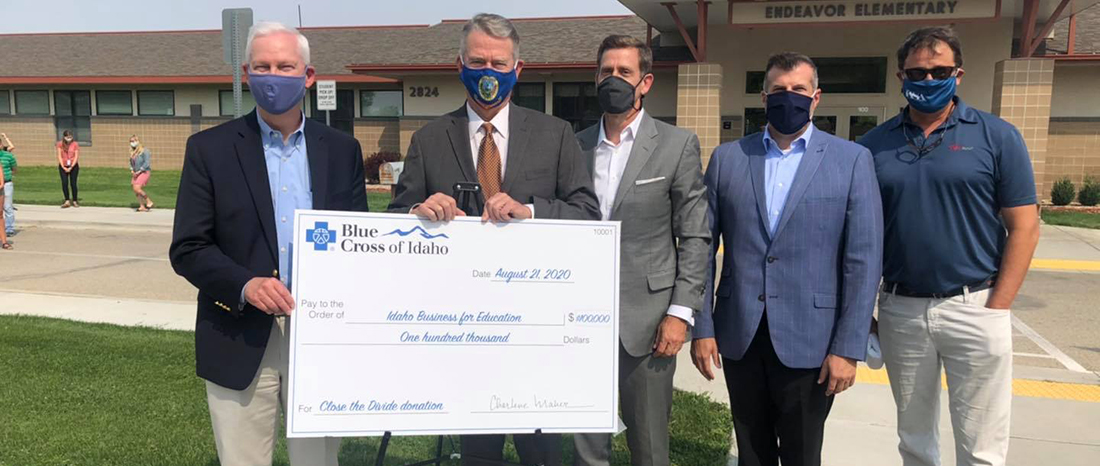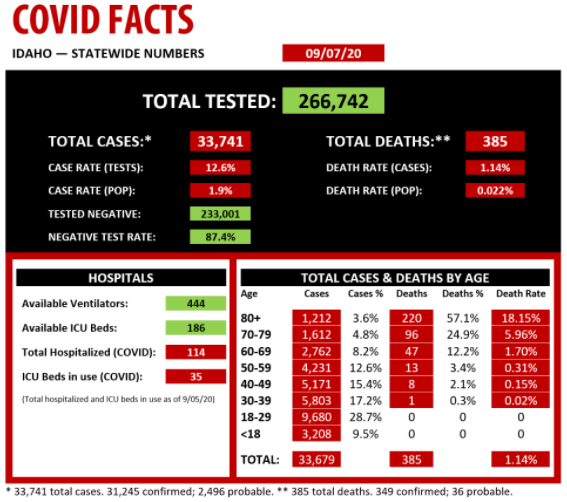
Idaho Experts and the people
By Dr. John M. Livingston Medical Policy Adviser
I watched with interest Gov. Brad Little’s recent press conference in which he declared that we would stay in phase 4 of our mitigation strategy for the next 2 weeks. During the question and answer portion of the press conference, the governor implied that he had surrounded himself with experts, and other voices in the community were being listened to and this caused angst and disappointment — especially in the business community. At that point I came to realize that our governor, after 6 months, has little insight into the process of managing the pandemic or the limitations inherent of what I call horizontally integrated governance.
I am sure our governor is a good man and well-meaning. Dr. Christine Hahn, the state’s epidemiologist, is an expert and I am proud of her contribution to the task force. But what is an “expert?” An expert is someone who knows a great amount about a small slice of the world, and most experts fail to see how their small sliver of the pie relates to the rest of the world. This, in the end, relates back to one’s ideas of political philosophy, what informs those ideas, and how they relate to reality.
The idea of how knowledge and how experts apply a method to harnessing knowledge goes back at least as far as the arguments between Plato and Aristotle regarding “forms” — Plato’s universal forms, and Aristotelian concepts “each instance or process being analyzed on its own terms.”
In 2010, thought leader and author Thomas Sowell wrote a book entitled “Intellectuals and Society.” He defined two types of knowledge: One practiced by “idea workers” who exert profound influence on public policy but as third parties they are never held accountable for the results of their theories. The second form of knowledge, according to Sowell, is practical everyday knowledge.
In 1945, in an essay entitled “The Use of Knowledge in Society,” Friedrich Hayek likewise described “special or scientific knowledge.” By this he meant theoretical or special expertise, and the other form of knowledge was unorganized knowledge which would be knowledge of particular circumstances.
Jonah Goldberg has described knowledge as being special(expert) and mundane(practical).
With respect to the second type of knowledge, Hayek stated: “Practically every individual has advantage over others regarding some realm of their world — especially the experts — who have the least amount of knowledge about the world outside their own little sector.”
It is said that in his later years, Einstein had an epiphany while walking through the stacks and rows of thousands of books in the Princeton library. He realized at that moment that he knew very little of the knowledge of the world. What Hayek and Sowell were explaining was the overall problem with centrally planned economies or governance. No matter how smart the people are in charge, they cannot possibly know the circumstances that everyday people are operating under. The danger of such thinking is that there has been a transfer of decision-making from our elected leaders to “experts or intellectuals.” There is no agency relationship between these experts and the people and by deferring to them instead of conferring with them our elected officials are saying to We The People that the experts know better about what is good for us than we do. The press, academics, unelected government bureaucrats are arrogant and myopic when applying this type of logic
Thomas Sowell has further stated that, “The locus of decision making has drifted away from the individual, the family, voluntary organizations (the church) and toward government. And within government it has moved away from elected officials and toward insulated government institutions.”
Dr. Hahn is doing her job as a public health specialist. The governor is too busy deferring and not busy enough conferring. Individuals, families, businesses are hurting in our state. Context and texture need to be applied to the science. That is the job of our governor and elected officials. And our governor doesn’t understand that. Deferring allows for excuses. Deferring passes the buck. Alibis destroy character.
Below is the recent public health data. It is not hard to read and everyday people can understand and make their own decisions about how to deal with this virus. But please look at the data. We were told that we were going to flatten the curve so the resources would not be depleted — human resources, vents/ PPE etc. We have more than done this. On March 19, it was reported that in Idaho we had 3000/500 hospital and ICU beds. That number for some reason has been almost cut in half when reading DHW data, but even then we have not come even close to stressing the system statewide or locally.
Decide for yourself. We The People are smarter than any government agency or bureaucrat. Even our good governor.

From idahofreedom.org